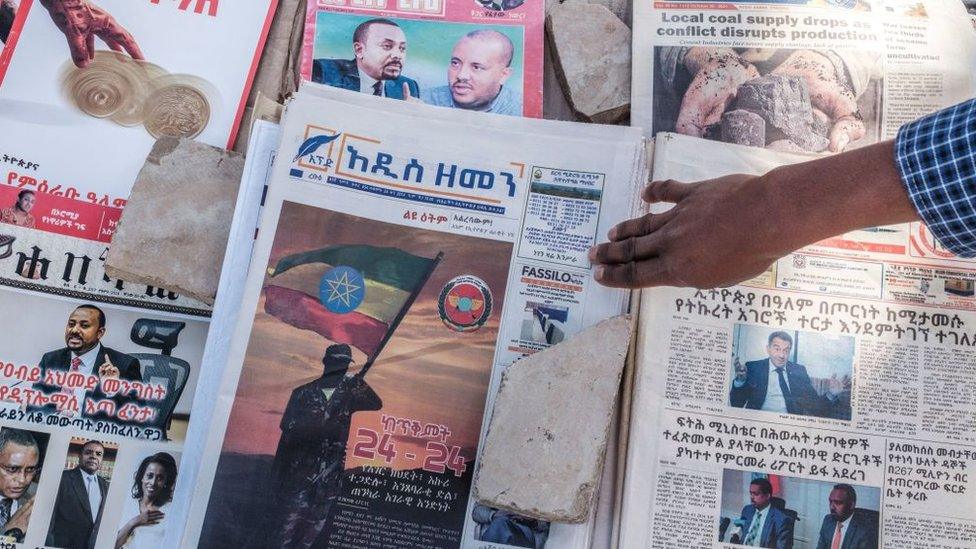Ethiopia media guide
- Published
This page is no longer being updated. It was last updated on 26 April 2023

Imprisoned journalists were freed and previously banned media were allowed to operate under reforms championed by Prime Minister Abiy Ahmed when he took office in 2018.
Among them were diaspora-based satellite TV stations ESAT and Oromo Media Network (OMN).
But by late 2020, amid inter-ethnic conflicts and fighting in the northern Tigray region, newly-recovered media freedoms were "hanging by a thread", Reporters Without Borders (RSF) said.
RSF said there had been no significant improvements to harsh media laws, which had been supplemented by a "vaguely-worded" law on hate speech and disinformation.
Although the state controls most broadcasting outlets, there is a handful of private TV and radio stations.
Radio is an important medium, reaching rural areas where most Ethiopians live.
Press circulation is largely confined to the literate urban elite.
There were 21.1 million internet users by December 2021, 17.7% of the population (Internetworldstats.com).
Online restrictions were rolled back after Abiy Ahmed took office in 2018, and the authorities lifted the blocking of hundreds of mainly opposition websites.
Social media platforms and messaging apps have been blocked intermittently, says Freedom House.
Press
Addis Zemen - state-owned daily
Ethiopian Herald, external - state-owned English-language daily
The Daily Monitor - private, English-language
Addis Admass, external - private, Amharic-language weekly
The Reporter, external - private, English-language web pages
Capital, external - English-language, business weekly
Addis Fortune, external - English-language business weekly
Television
Ethiopian Television (ETV), external - state-owned
Fana TV, external - private
Walta TV, external - private
ESAT, external - private satellite TV and radio station
Radio
Radio Ethiopia, external - state-owned, operates National Service and regional stations
Voice of Tigray Revolution - Tigray Regional State government radio
Radio Fana, external - founded in 1994 by ruling party
Sheger FM, external - private, Addis Ababa
Zami Radio - private, Addis Ababa
News agencies/Online
Walta Information Centre (WIC), external - privately-owned, pro-government
Ethiopian News Agency (ENA), external - state-owned